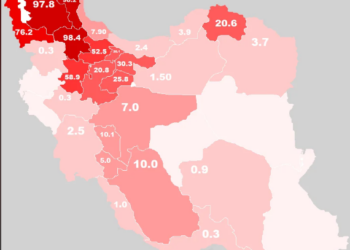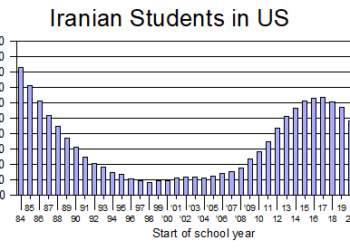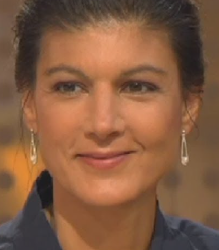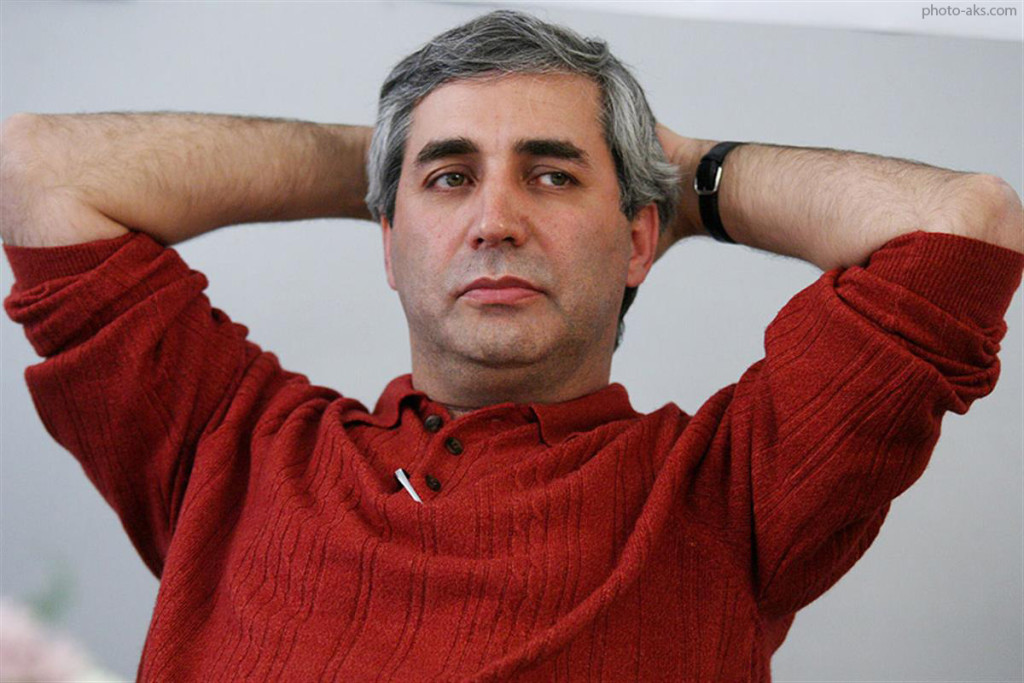
Two of Iran’s most successful moviemakers are engaged in a verbal brawl that in many ways summarizes the dispute between left and right in the Islamic Republic—and the debate over what direction Iran should take,
On the one side is Abbas Kiarostami, probably the best-known Iranian filmmaker on the international scene.
On the other side is Ebrahim Hatami-kia, a household name in Iran for his films—many of which focus on the Iran-Iraq War—but little known abroad.
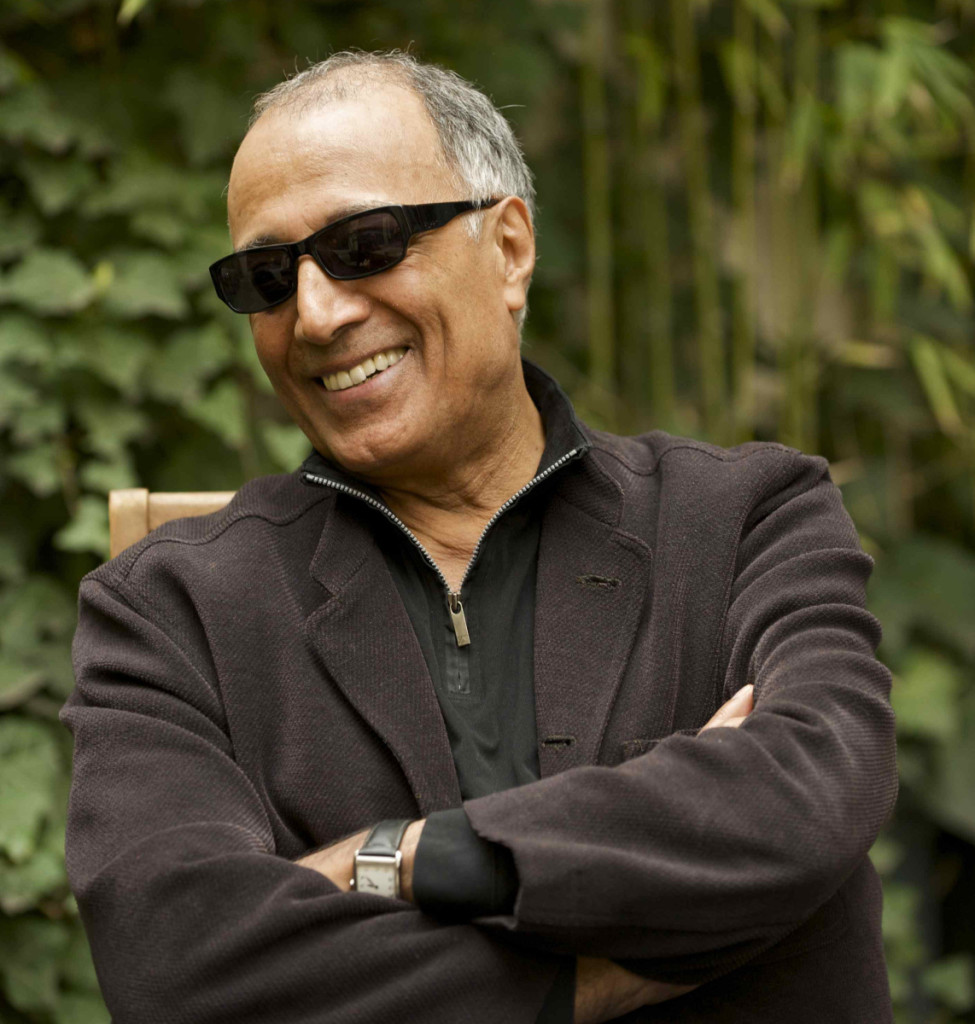
Kiarostami argues for a more open, liberal Iran that engages with the rest of the world and doesn’t spit in its face.
Hatami-kia stands firmly by the tenets of the Islamic Republic and draws inspiration and meaning from the 1980-88 war.
Hatami-kia, 53, was 19 when the war began, so the war is logically a major part of his personal history and links him to his worldview.
Kiarostami. 74, was 40 when the war began. He remembers the war well, but his worldview was formed long before that in the battle against the Shah; his dreams for Iran were shattered when the clergy consolidated power.
Their clash symbolizes “a type of free-thinking versus the authoritative opinion of the state,” said Parviz Barati, an author of books on Iranian culture and commentator for the daily Sharq. “The same friction we see between these two icons of cinema is visible within Iranian society.”
The eight-year war remains a central pillar of the Islamic Republic’s identity, known as the Sacred Defense. Yet it is distant history for many younger Iranians, who are more concerned about the country’s isolation, lack of opportunity and dictated culture.
The directors’ spat escalated last month, with Hatami-kia, for whom the revolution and the war continue to define the Iranian state, accusing Kiarostami of being a “darling of foreign film festivals” who has denigrated the war’s martyrs.
Kiarostami, whose films explore human relationships and topics such as compassion or justice, shot back in a newspaper interview, implying Hatami-kia’s war movies were formulaic rehashes of Hollywood themes, while denying he doubted the heroism of those who died fighting Iraq.
“In a time of peace, I am not interested in talking about war,” he told the daily Etemad October 9, alluding to what he sees as the need for films to address contemporary issues.
Supporters have lined up behind the two directors.
Qasem Soleimani, the commander of the Qods Force and the increasingly public face of Iran’s contribution to the fight against the Islamic State, wrote an open letter to Hatami-kia encouraging him to ignore criticism and “continue on your path” as “your prize is people’s awakened conscience.”
Others also expressed their backing. “In the West, they still make movies about World War II,” said Hamid Asemani, 34, a communications student at Allameh Tabatabai University in Tehran. “Our war only ended some two decades ago. Of course, it’s important that we still document and discuss it.”
Defending Kiarostami, Hojatollah Ayubi, deputy culture minister and head of Iran’s Organization of Cinema, said the director is also “enamored by” sacrifices made in the war though he wants to depict them in “his own style.”
Kiarostami is “very open to the world,” said Barati. “His fans are mostly liberal, more independent-minded reformists who back democracy,” he said. “Kiarostami doesn’t deliver slogans in his movies and stays away from ideology. Such people have always been under pressure. Some like Kiarostami have remained in Iran while others have left.”
The sparring has generated passions.
“In contemporary Iran, it’s impossible to criticize the war,” said Roxanne Varzi, an assistant professor of film and media studies at the University of California in Irvine and author of “Warring Souls: Youth, Media and Martyrdom in Post-Revolution Iran.” It’s “at the heart of the entire authority of the state,” she told Bloomberg news.
Conservatives opposed to President Rohani accuse his government of diluting the declared objectives of the revolution, such as independence from the US and social stability. They see him as ready to meld Iran into the rest of the homogenized world while they seek to preserve Iran as different and, of course, better.
Hatami-kia, who spent time at the front in the 1980s documenting the conflict, “is a believer in the cause and what the war stood for,” said Saeed Zeydabadi-nejad, a senior fellow at the School of Oriental and African Studies’ Centre of Media Studies in London.
His dedication has won him support from conservatives who see the resistance of the then-nascent Islamic Republic to foreign aggression as modern Iran’s most formative episode.
For many Iranians his films don’t relate to their present lives. “Hatami-kia made movies about a period of Iran’s history and they had their impact,” Ali Honarvar, a 29-year-old sculptor in Tehran, told Bloomberg. “But this isn’t all there is.”
It is unfair to Hatami-kia to depict him as a maker of formulaic war films like those churned out by Hollywood from 1941 to 1945. An immense proportion of Iranian film production is comprised of just such shoot-‘em-up, charge-the-enemy films.
But Hatami-kia reaches a higher plane. Two of his films have been released in North America. And one of those, “The Glass Agency, released in 1999, seems to summarize the cultural battle underway between him and Kiarostami.
The film is about a war veteran who needs medical care for the shrapnel still inside his body. A doctor recommends he go abroad for care. But just about everyone the veteran comes in contact with as he tries to arrange this trip wants to forget about the war and move on with their lives. The veteran loses his temper and ends up taking a whole travel agency hostage.
Some think the Islamic Republic has taken a whole society hostage.
















